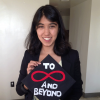
An Unexpected Mentor
The value of informal networking and human connections
“You win some, you lose some. Well… you lose most,” Sunny said, reacting to our latest unsuccessful experiment. We frown at the lab bench briefly before laughing at the silliness of the situation. Sunny shrugs, standing by his statement and commenting on the nature of grad school as he reminds me that we put in our best effort.
That’s Sunny, for you. As a senior PhD student in my lab group, he’s a certified expert on the struggles of grad school. He’s a lone theory buff in a department of hackers. Sunny often provides a much needed reality check on what grad school is and what hurdles lie ahead, and he does not hesitate to share any of the frustrations he faces regularly. He’s also one of my biggest role models here at MIT.
When I first met Sunny, I was sometimes taken aback by his cynicism (“9.9 out of 10 things don’t work, Bianca”). Sunny provides a mix of sarcasm, sheer excitement, reliable support, and silly puns. He pokes fun at many of the ridiculous and frustrating experiences that pop up in our daily lives. Today we were discussing the mind-boggling process of trying to draw a series of concentric circles with equal spacing for a presentation and how much time was spent doing so.
Sunny is one of the funniest and smartest people I’ve met at MIT, but it’s his genuine kindness that really makes him shine. Hardly a day goes by without me asking him a series of questions about how I should proceed with some aspect of my work or life. He genuinely cares about the other members of our group and our department.
Sunny is quick to volunteer to help other group members with tasks as mundane as moving a table and as complex as explaining the physical underpinnings of holography without batting an eyelid.
He provides guidance on research questions and nudges me when I need to be challenged. I often brainstorm with Sunny, or run experiment ideas by him even if the topic does not fall in his core area of expertise. He can be critical when I need that feedback, and supportive when I’m struggling with imposter syndrome.
Most importantly, Sunny is my friend. We commiserate, wait at airports together, organize GetFit teams, go to career fairs, and encourage one another to stay motivated and stick to our to-do lists.
His influence has expanded past research: Sunny is able to answer practical questions about career planning, program requirements, and the reality of grad school life much more effectively than a formal mentor might be. We talk about current events, complain about the weather, and discuss our favorite places to eat in Boston.
Despite his kindness, it sometimes feels like Sunny gets overlooked. He’s patient and humble, and his work doesn’t always translate into a polished video or a snappy tagline as easily as some of the work around us. He is an unassuming expert in his field. I’ve often seen random people wander into our office to ask questions, and Sunny will patiently spend an hour steering them in the right direction and connecting them to useful resources.
As I’ve learned more about Sunny and his experiences at MIT, I’m more and more impressed by the grace, optimism, and dedication with which he approaches his work and his life, despite the many obstacles he has faced personally and professionally.
During orientation, we were repeatedly encouraged to find mentors, committee members, and advisors to guide us and help us grow. I felt immense pressure to find a fantastic mentor; someone who knows all the answers, has a formal method, and could identify the next big problems in my field. I’ve found myself struggling to figure out how to encourage my advisor to give me more feedback or racking my brain to find someone in my field who could give me the edge I need to produce excellent research. I’ve fretted over my slowly developing research skills.
When thinking about committees and advisors, it’s incredibly appealing to seek one of the biggest names in your field, especially at a place like MIT that is populated by brilliant professors. On the surface this seems like the right career move, but often, what you really need is the person who will watch puppy videos with you, encourage you when you’re hesitating to step up, and commiserate with you as you complain about the futility of it all.
Eventually I learned the secret: I don’t necessarily need a big shot professor to help me learn. I have an even better resource: Someone who genuinely cares about my personal development and is readily accessible to lead by example. The most meaningful relationships I’ve forged at MIT are the ones with my peers and older students like Sunny.
I’ve learned effective research methods by taking an interest in the projects that my friends are conducting, I’ve found collaborators by grabbing coffee with a classmate and discovering shared interests, and perhaps most importantly, I’ve struggled through the difficult days with my peers by my side. Ultimately these are the people who bring richness and depth to my experience at MIT.
Sunny didn’t become my mentor through any formal search or mentorship program. I simply asked a lot of questions and found him to be incredibly receptive. When a spot opened up in the four-person office in the corner of my group, he and another student encouraged me to pick a desk there. I have been able to learn from his example, troubleshoot with him when necessary, and gain some insight into the progression of graduate students.
The night before his thesis proposal presentation, Sunny spent over half an hour teaching me how to make animations for my first conference presentation. Along the way, I handed him a postcard to help encourage him to write to his senators to express his frustration with recent events.
Share this post:
